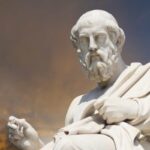We explain what epistemology is, who its representatives are and what its main ideas are.

What is epistemology?
Epistemology is a branch of philosophy that studies problems related to the validity of knowledge and how it is obtained.
Due to its many uses and meanings, it is often said that Epistemology is the study of the conditions of production and validation of scientific knowledge.
The word is used epistemology to name research that has to do with epistemology or theory of knowledge. It is sometimes confused with methodology, which deals with technique and not with the conditions necessary to obtain knowledge.
The function of epistemology is to investigate the historical, psychological and sociological circumstances in which scientific knowledge is produced. It is also responsible for studying the criteria that justify or invalidate it.
See also: Philosophical disciplines
What does epistemology study?
Epistemology as a science is considered one of the branches of philosophy. Study how and under what conditions scientific knowledge is produced. Some of the elements it works with are:
- The objective, historical and social circumstances of the production of different types of knowledge that are considered scientific
- The criteria used to consider something as scientific.
- The concepts: truth, justification, hypothesis, corroboration, among others.
Etymology
The word epistemology comes from the term episteme, which means “knowledge” or “science”, together with the suffix –lodgewhich means “study, reason or logical discourse.” It translates as “study of knowledge.”
In the past, classical thinkers used the term “episteme” to refer to knowledge different from that which could be obtained through “tekne” or technique, which was instrumental knowledge. Also distinguished was the episteme of “doxa” or general knowledge, associated with common and informal opinion.
History and epistemological currents
Epistemology as a science developed in the 19th and 20th centuries. However, its history dates back to Antiquity and philosophers such as Plato and Aristotle. Already then the episteme was opposed to the doxawhich was vulgar knowledge. For Plato, knowledge was obtained from ideas, while for Aristotle all knowledge was born from the experience obtained through sensitivity.
During the Renaissance and the Modern Age the search for scientific knowledge was consolidated. Epistemological methods then consisted of the analysis and synthesis of the phenomena experienced through human experience.
Philosophers such as Johannes Kepler (1571-1631), Galileo Galilei (1564-1642), René Descartes (1596-1650) or Immanuel Kant (1724-1804) deepened and expanded the criteria used to analyze the obtaining of scientific knowledge. Even so, The one who came closest to the contemporary meaning of epistemology was John Locke (1632-1704), in his Essay on human intelligence.
For his part, the Discourse of the methodby Descartes, and Critique of pure reasonby Kant, resulted in rigorous criteria to establish the limits and possibilities of the human being in his attempt to find strictly scientific knowledge.
On the other hand, The epistemological school that had the greatest influence at a theoretical level was that of the logical neopositivists. Grouped in the Vienna Circle, its intellectuals studied the logical forms of thought and the construction of scientific knowledge. Bertrand Russell and Ludwig Wittgenstein were his greatest inspirations.
Some philosophers such as Carnap, Neurath and Hempel formed the first great school of epistemology of the 20th century: they were in charge of the study of the logical forms of statements and established criteria based on logic.
Karl Popper was the first to discuss the bases on which the epistemology of the logical neopositivists was proposed, by criticizing the criterion of induction (the process by which one reaches from a singular statement to more general knowledge). Popper claimed that induction was impossible and that had serious consequences for scientific knowledge. He replaced it with the logical-deductive method, which maintains that no theory is verified but is only corroborated until new knowledge calls it into question.
The 20th century, heir to the transcendental, idealist and vitalist currents of the 18th and 19th centuries, saw the emergence of hermeneutics. This is a philosophical theory developed by Hans-Gadamer (1900-2002), a continuator of the works of Friedrich Schleiermarcher (1768-1834), Wilhelm Dilthey (1833-1911), Edmund Husserl (1859-1938) and Martin Heidegger (1889- 1976).
Hermeneutics emerged as the method of the human sciences (history, politics, economics and art) to interpret and understand the phenomena object of their investigations. Hence the use of the word hermeneuticswhich comes from the Greek hermeneueinwhich means “to interpret” but also “to announce.”
This gradual process on the possibility of knowledge resulted in epistemology as a strict science, focused on distinguish, point out and analyze the historical and social conditions in which all forms of knowledge originate be it historical or contemporary, social or exact, practical or intellectual knowledge.
Main representatives of epistemology
Epistemology is a branch of philosophy that is constantly developing. Throughout the history of Western philosophy, different thinkers have contributed to giving epistemology its own specificity. Some of them are:
- Karl Popper (1902-1994). Critic of logical neopositivism, he proposed the logical-deductive method as a tool to corroborate scientific theories.
- Rudolf Carnap (1891-1970), Otto Neurath (1882-1945) and Carl Hempel (1905-1997). Part of the Vienna Circle, these three authors immigrated to the United States and worked to clarify the nature of scientific explanation.
- Hans-Gadamer (1900-2002). Founder of hermeneutics, he changed epistemology by turning it to the interpretation and understanding of discourse.
- Paul Ricoeur (1913-2005). French hermeneutic philosopher and phenomenologist, combined phenomenological description with hermeneutic-epistemological interpretation.
In addition to Popper, Carnap, Gadamer and Ricoeur, many other philosophers and thinkers have been, at a certain point in their philosophical history, representatives or practitioners of epistemology. As a philosophical practice linked to the method and the possibility of knowing, it is very common for every relatively systematic philosopher to think at least once about his or her epistemological position and practice.
Epistemology, philosophy of science, epistemology and methodology
It is important to distinguish epistemology from the philosophy of science, epistemology and methodology.
- The epistemology It studies how knowledge is produced in general, whether scientific, practical or sensible. Many contemporary authors seek to unite epistemology and epistemology. However, epistemology refers strictly to scientific, not general, knowledge.
- The philosophy of science. Study the different types of knowledge (whether scientific or metaphysical). It has a broader approach than epistemology. His questions are those that investigate, for example, whether we know through the senses or reason. For its part, epistemology starts from an already stipulated base and does not seek to investigate these questions.
- The methodology Study the processes necessary to reach certain knowledge. It does not seek to investigate the conditions under which the investigation is carried out or its legitimation conditions. It can be considered one of the branches most associated with technology. The methodologist does not question the knowledge accepted by a scientific community. Their work is related to strategies aimed at increasing available knowledge.
Continue in: Methodology
References
- Grondin, J. (1999). Introduction to philosophical hermeneutics. Herder.
- Yesterday, AJ (Ed.). (1965). logical positivism. FCE.
- Bachelard, G. (1975). Epistemology. Anagram.
- Waetofsky, M. W. (1973). Introduction to the philosophy of science2 vols. Alliance.
- Verneaux, R. (1999). General epistemology or criticism of knowledge. Herder.





